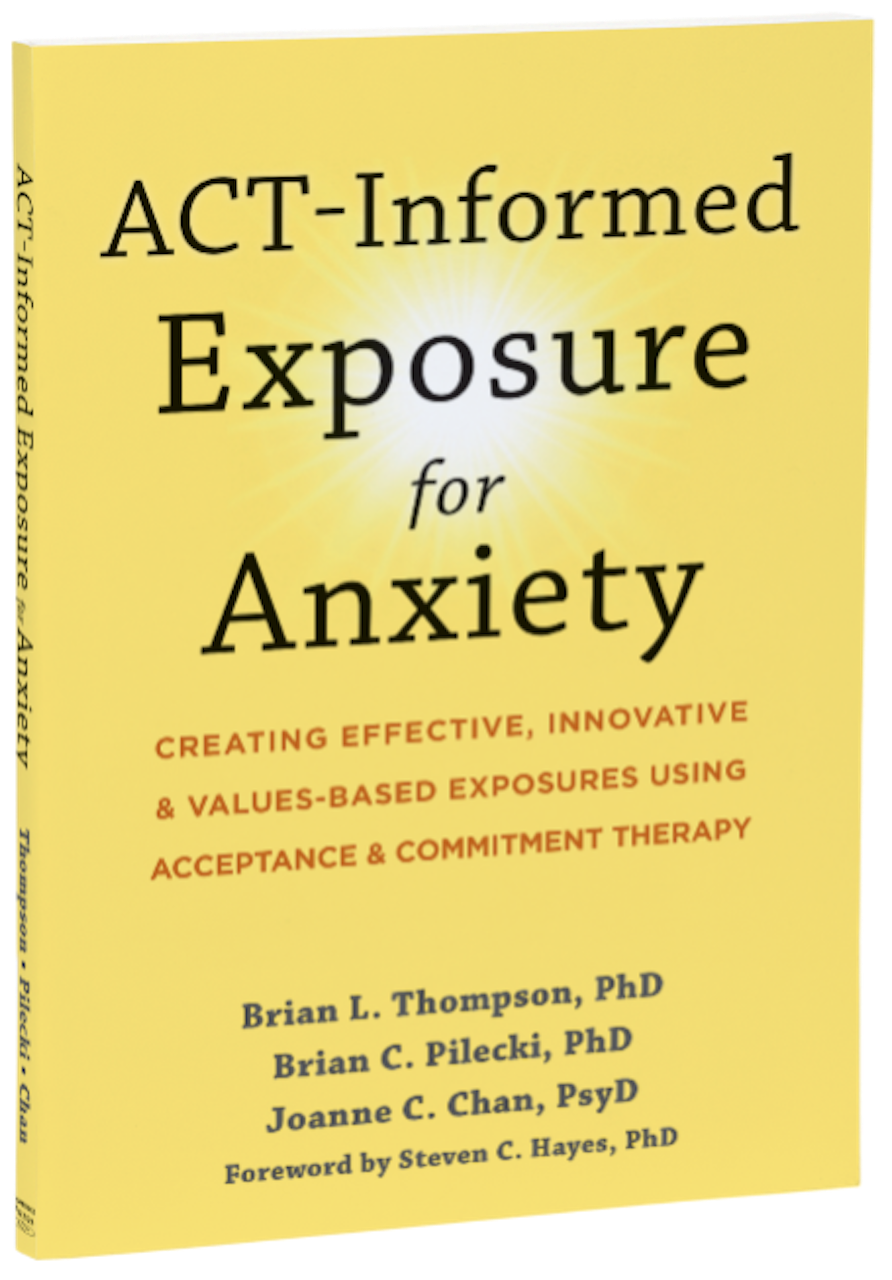Beyond Fear: Exploring the Role of Shame in Exposure Therapy
Apr 14, 2023
As an exposure therapist, I am well-equipped to assess and treat many different types of anxiety. Clients who seek me out often leave messages about their anxiety, OCD, or panic problems. Most of the time, they are correct and receive a diagnosis of an anxiety disorder after our initial assessment session. However, few people call me and say things like, “I am having a problem with shame” or “I need help with feelings of humiliation and inferiority”, or “I just feel like something is wrong with me.” Why is that? Is anxiety more acceptable in our current culture? Is it too embarrassing to say that you are struggling with shame?
Shame is often present when clients ask for help with anxiety, even if they don’t explicitly report it. It is not uncommon for a client to feel that they are weak for struggling with anxiety or that there is something broken inside them that needs to be fixed. I see this particularly when their anxieties don’t have a logical basis such as in OCD obsessions. Clients may believe that they are supposed to be able to control their anxiety and the fact that they get nervous in “normal” situations such as going on a date or public speaking means that there is something wrong with them. Although it's normal for us all to feel shame at times, many clients get stuck in their shame, which can make it difficult for them to complete therapy tasks and feel connected to their therapist. In addition to coping with anxiety, part of helping clients progress in therapy is helping them cope with shame, too.
Shame is acutely painful because it fuels a sense of disconnection from others. Put simply, shame threatens belonging. Even in the context of Exposure Therapy, much of my work as a therapist is letting my clients know they are not alone. I do this by offering a normalizing and validating viewpoint: anxiety, despite everything we are told, is a normal part of day-to-day experience. Thankfully, psychological research has helped us understand enough about anxiety to be able to explain most of the phenomena we see with problems such as OCD, panic disorder, social anxiety, and generalized anxiety and share that with our clients.
Often clients feel relieved and affirmed to hear that their anxieties are explainable and scientifically understood. Naming this can be a sufficient strategy to keep shame from interfering with their ability to exposure work in therapy. However, be on the lookout for the presence of shame throughout the course exposure therapy. At times, it may be obvious. Consider the client who tells you that they feel embarrassed about exposure exercises like reading a story of a medical anomaly to target their health illness anxiety or hyperventilating into a paper bag to produce panic sensations. These aren’t typical adult behaviors, so it may obviously make them self-conscious. At other times, shame may be more subtle, such as when your client avoids eye contact or is quieter than usual at the end of an exposure session or in reporting on their homework.
Here are some tips for working with shame when doing exposure work outlined in my new book, ACT-informed Exposure Therapy for Anxiety:
- Ask about it: If a client doesn’t report it but you suspect there is shame present, it can be helpful to just ask. “It seems as if you might be feeling a little embarrassed after we just watched that video. Is that the case?” This can be very helpful for clients in tracking their own experience and discerning between different emotional experiences such as anxiety, shame, disgust, etc.
- Don’t avoid shame: There is a tendency to avoid shame because we fear that addressing it will make it worse. We might find that we skip over to something more comfortable to talk about for fear of embarrassing a client further. However, this only reinforces the idea that they shouldn’t be feeling shame or that shame is a problem.
- Be authentically supportive: When a client admits to shame about something related to their anxiety, it’s an opportunity to model more compassionate and supportive language. Here, it’s important to be authentic. In other words, telling a client “You’re amazing!” if that isn’t what you are feeling can come across as contrived and unhelpful. Instead, take a moment to pause and see if you can share something that feels authentic, such as “You are really staying with this exposure work even though I can tell it’s hard for you.”
- Doing exposures with clients: Sometimes doing an exposure with a client can reduce shame. We’re in this together! See, I’m willing to make a fool of myself too! Doing exposures with clients can have various therapeutic benefits and can be a powerful intervention at defusing a sense of alienation when doing exposures. At other times, though, it might increase shame. Why is my therapist contaminating his hands too? Does he feel sorry for me? Be flexible and pay attention to what is best for each client.
- Connect with community: If a client fears they are crazy or weird because they have unusual thoughts about killing their loved ones, it can be helpful to say “That’s a harm obsession!” and normalize such thoughts. However, introducing clients to other people with harm obsessions can be another step towards normalizing. You can have clients go to internet resources, forums, conferences, or podcasts to hear stories about how similar types of anxiety effects other people.
In short, it's crucial as therapists that we don’t become so fixated on anxiety that we overlook other vital emotions. Shame commonly co-occurs with anxiety, so keep an eye out for it in both obvious and subtle forms.
Author: Brian Pilecki, PhD
ACT-informed Exposure Therapy is out May 1, 2023. Click here to pre-order!
If you liked this post, check out Dr. Pilecki's workshop on ACT-Informed Exposure this April: A Practical Guide to Applying ACT-informed Exposure
Learn more about our live, virtual, and accredited courses from the best minds in evidence-based therapy and Acceptance & Commitment Therapy (ACT), brought to you by Portland Psychotherapy Training.
Join our mailing list!
Subscribe and get curated research reports, essays, and special course offers – right to your inbox.
We hate SPAM. We will never sell your information, for any reason.


